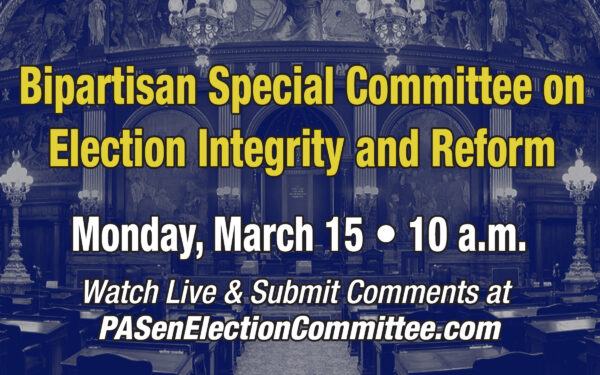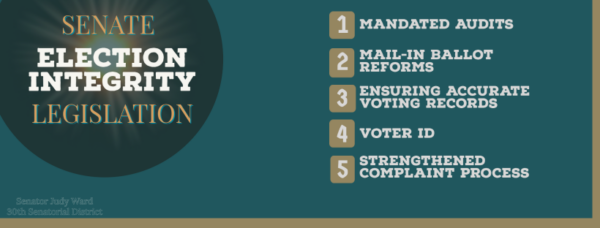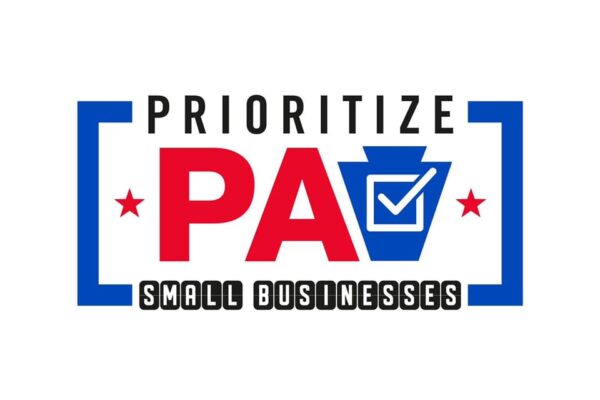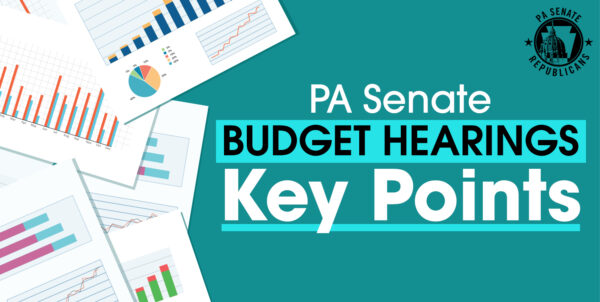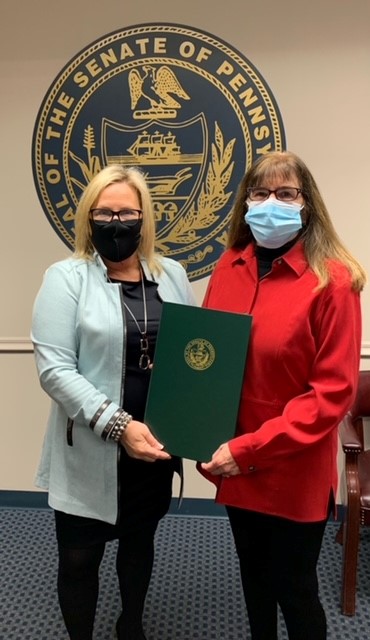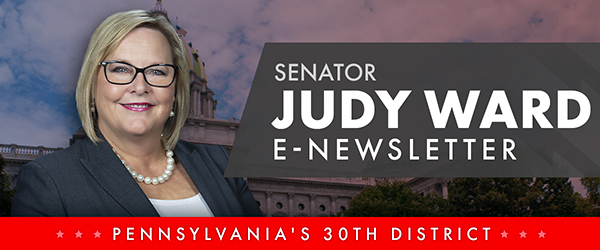
|
|||||
|
In This Update:
Special Committee Set to Begin Bipartisan Election Review
A newly created Senate panel will begin a comprehensive review of the 2020 General Election with its first hearing on Monday, March 15, beginning at 10 a.m. The hearing is scheduled to review best practices of election integrity and security from other states. The Special Committee on Election Integrity and Reform is anticipated to produce a report that will be presented to the General Assembly with recommendations to improve the administration and safety of elections in Pennsylvania. State residents are encouraged to submit comments through the online form. Election Integrity Legislation
Public confidence in our elections is necessary for a functioning democracy. Pennsylvania Senate Republicans are working to restore it by introducing legislation to ensure election integrity. A few of these bills are highlighted below. I am pleased to be the sponsor of two of these bills.
Updated Nursing Home Visitation GuidanceThe Federal Centers for Medicare and Medicaid Services (CMS) issued updated guidance Wednesday on visitation in nursing homes. Please find below information received from the Pennsylvania Department of Health which provides a summary of the changes to the CMS visitation guidance originally issued in September. You can view the updated Nursing Home Visitation guidelines by clicking here. If you are interested, you can click here for a press release from CMS on the updated guidance and here for a Fact Sheet. The revised visitation guidance, which is effective immediately, reflects the positive impact that COVID-19 vaccinations are having on residents and staff in nursing homes. The updated guidelines provide that skilled nursing facilities should allow responsible indoor visitation at all times and for all residents, regardless of vaccination status of the resident, or visitor, unless certain scenarios arise that would limit visitation for:
The document also speaks to outdoor visits, indoor visitations during an outbreak, visitor testing and vaccination, compassionate care visits, access to the Long-Term Care Ombudsman, among other items.
If you have a concern about the inability to visit loved ones in a nursing home and you encounter any problems related to visitations in nursing facilities, you may speak with a long-term care ombudsman. The ombudsman provides assistance when residents or family members have concerns with the rights of older consumers, quality of care/treatment from a provider, and other matters. The local Pennsylvania Area Agency on Aging has information about the ombudsman. Also, you can reach out to the Office of the State Long-Term Care Ombudsman – (717) 783-8975. The following link provides a list of ombudsman by county: https://www.dibbern.com/ombudsman/pa-long-term-care-ombudsman.htm. Prioritize PA Small Businesses
On Monday, I along with some of my colleagues including Senator Ryan P. Aument, Senator Camera Bartolotta and Senator Kristin Phillips-Hill will be holding an event to share our legislative efforts to reduce the financial and regulatory burdens on small businesses. Two weeks to flatten the curve and the Constitutional amendments for changeWe heard the message loud and clear: “two weeks to flatten the curve.” Governor Tom Wolf talked about how it was our civic duty to lockdown and fight this virus to protect others. That “two weeks to flatten the curve” turned into six weeks which turned into 20 weeks then 40 weeks and then 52 weeks. It has been one year since Governor Wolf called on Pennsylvanians to take steps in order to keep hospitals from becoming overwhelmed due to the COVID-19 pandemic. My heart breaks for the more than 24,300 Pennsylvania residents we have lost. While we mourn their passing and pray for their grieving families, we also mourn the loss of our freedoms. In the year that has been “two weeks to flatten the curve”, we have seen schools closed, restaurants shut down only to reopen with capacity limits, bars forbidden to serve customers without food and after 11 p.m. Gyms were shut down and Mom-and-Pop retail stores were shuttered. We have experienced economic devastation. Many of our neighbors lost their jobs and their livelihoods. We expected these limitations to be short term in nature, designed to prevent hospitals from being overwhelmed. We did our jobs. We stayed at home. Hospitals did not become overwhelmed, either during those initial few weeks or any time after that. And yet Governor Wolf’s emergency declaration orders march on – 52 weeks and counting. Every time the General Assembly tried to bring a voice of reason to the conversation to address the economic impacts of his shut downs or to end the emergency declaration, Governor Wolf got out his veto pen. That is the reason two constitutional amendments appearing on the May 18th ballot are so important. One limits an emergency declaration to 21 days unless the General Assembly approves a longer duration. The other clarifies that the governor will not be able to unilaterally veto legislative action that ends the declaration, as Governor Wolf has done. Under current law, a governor’s emergency declaration can last up to 90 days and be renewed by the governor indefinitely. For 52 weeks, Governor Wolf has used this blanket authority to change and suspend state laws and prevent shuttered businesses from reopening with safety measures in place. Nothing in these amendments prevents state government from being able to “respond to the dangers facing the Commonwealth” as the Wolf administration claims. Rather, the amendments – if approved – simply prevent one person from unilaterally throwing tens of thousands of citizens out of work, barring children from school, and spending millions of taxpayer dollars. Under the changes proposed in the ballot questions, the General Assembly may determine via legislation the general manner in which emergencies will be managed in the future, but the administration’s departments would be responsible to carry them out within that framework. The executive branch would be involved in the entire process, but now it would have to work with the people’s representatives. These amendments have not been taken lightly. Public health and safety are critically important. This legislation was debated, amended, and passed in two consecutive sessions of the General Assembly. I voted yes to putting these proposals before you, the voters, to give you a voice on these critical issues. Now it is your turn to use your voice when you vote on these ballot questions. Please consider the true intent of these amendments. Budget Hearings Delve Into Wolf’s Spending and Tax Plans
The Senate Appropriations Committee began the formal process of reviewing Governor Wolf’s budget proposal this week, including exploring how the governor’s massive new spending plans and record-breaking tax increases would impact Pennsylvania communities, families and small employers. Some of the key points discussed during the hearings this week include:
Franklin County COVID-19 Hospitality Industry Recovery Grant Program (CHIRP) OpenFranklin County has announced the opening of the application period for the COVID-19 Hospitality Industry Recovery Program (CHIRP). CHIRP offers grants to eligible businesses in the hospitality industry to alleviate revenue losses and pay eligible operating expenses due to the COVID-19 pandemic. Franklin County has received this funding to help protect and preserve the state’s hospitality industry. Eligibility Criteria:
Grant Amounts: $5,000 – $50,000 Application Dates: Applications will be accepted starting March 15, 2021, at 9:00 AM through June 15, 2021, at 5:00 PM (or earlier if funds have been exhausted). How to Apply: Franklin County Area Development Corporation (FCADC) Contacts: FCADC (717-263-8282 or chirpgrant@fcadc.com) The COVID-19 Hospitality Industry Recovery Program (CHIRP) funding is provided by the Commonwealth of Pennsylvania through Act 1 of 2021, which allocates $145 million in assistance for counties to establish a grant program for eligible businesses adversely affected by the COVID-19 pandemic. Cumberland County COVID-19 Hospitality Industry Recovery Grant Program (CHIRP) OpenCumberland County has announced the opening of the application period for the COVID-19 Hospitality Industry Recovery Program (CHIRP). CHIRP offers grants to eligible businesses in the hospitality industry to alleviate revenue losses and pay eligible operating expenses due to the COVID-19 pandemic. Cumberland County has received $2.9 million to help protect and preserve the state’s hospitality industry. Eligibility Criteria:
Grant Amounts: Up to $50,000 (depending upon business size) Application Dates: Applications will be accepted starting March 15, 2021, at 9:00 AM through June 15, 2021, at 5:00 PM (or earlier if funds have been exhausted). How to Apply: Cumberland Area Economic Development Corporation (CAEDC) Contacts: Valerie Copenhaver (717-240-7193 or Valerie@visitcumberlandvalley.com) The COVID-19 Hospitality Industry Recovery Program (CHIRP) funding is provided by the Commonwealth of Pennsylvania through Act 1 of 2021, which allocates $145 million in assistance for counties to establish a grant program for eligible businesses adversely affected by the COVID-19 pandemic. Emergency Rental Assistance Applications Available Now
The Pennsylvania Department of Human Services (DHS) has established the Emergency Rental Assistance Program (ERAP) to provide financial assistance to eligible households, directly or indirectly impacted financially by COVID-19. This assistance is available to eligible households struggling to pay rent, rental arrears, utilities, utility arrears, and other related housing expenses. Eligible Applicants:
To apply for the initial application electronically, go to the COMPASS website at https://www.compass.state.pa.us/compass.web/Public/CMPHome under Emergency Rental Assistance Program (ERAP). Further information and application assistance can be found at the following: Blair County: Blair County Community Action Cumberland County: Cumberland County Housing & Redevelopment Authority (CCHRA) Franklin County: South Central Community Action Programs (SCCAP) Fulton County: Center for Community Action Huntingdon County: Center for Community Action The Emergency Rental Assistance Program (ERAP) funding is provided by the Commonwealth of Pennsylvania through Act 1 of 2021 and is administered by the Pennsylvania Department of Human Services (DHS). Around the District
Congratulations to Janice Freehling who just retired as Chief of Police from Altoona Police Department. Janice was the first female officer hired by the City of Altoona in 1976 assigned to the Patrol Division. After several promotions throughout the years, she was appointed as Chief of Police in 2011. Best wishes for a well-deserved retirement!
I joined a few of my House of Representative Colleagues in visiting the local Carpenters Union Local 423 in Duncansville. |
|||||
|
|||||



2024 © Senate of Pennsylvania | https://senatorjudyward.com | Privacy Policy |
